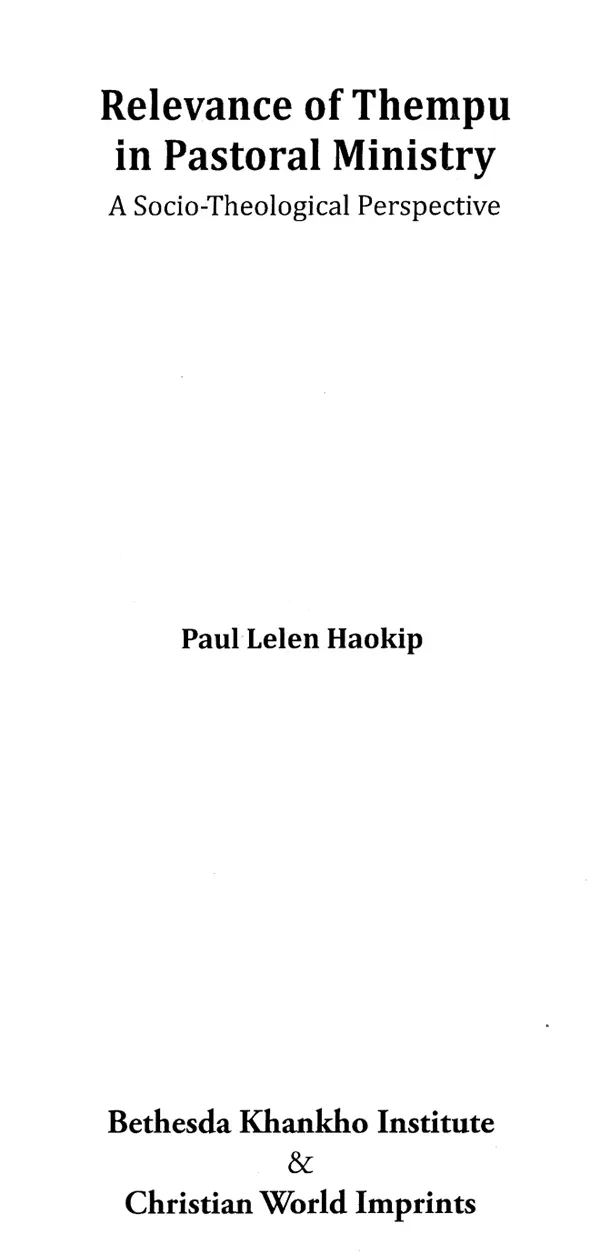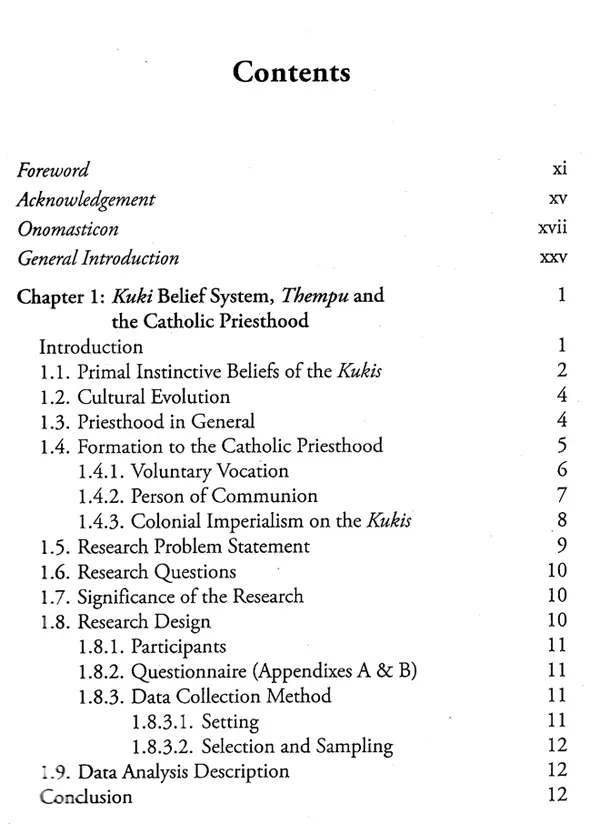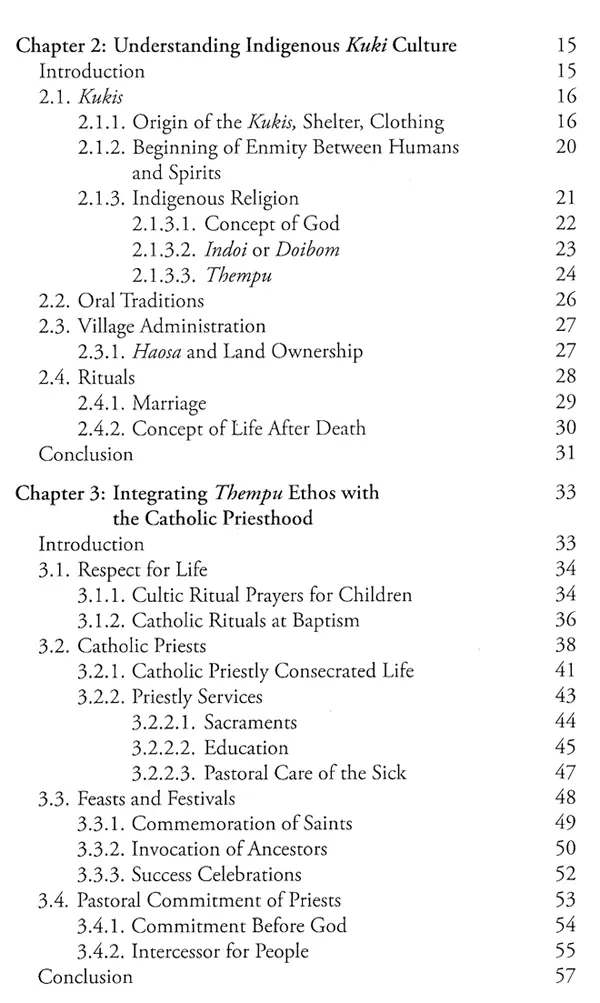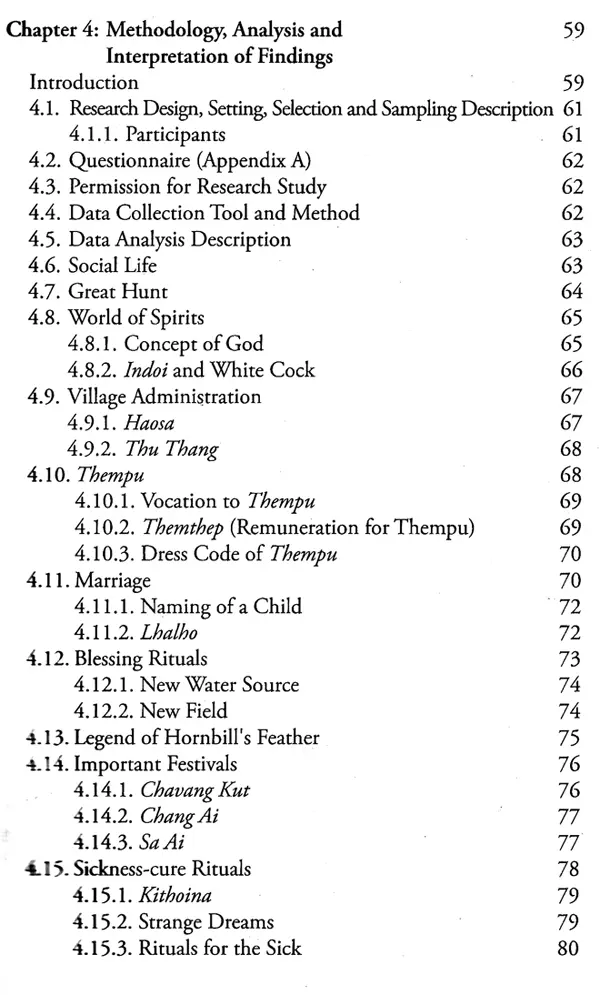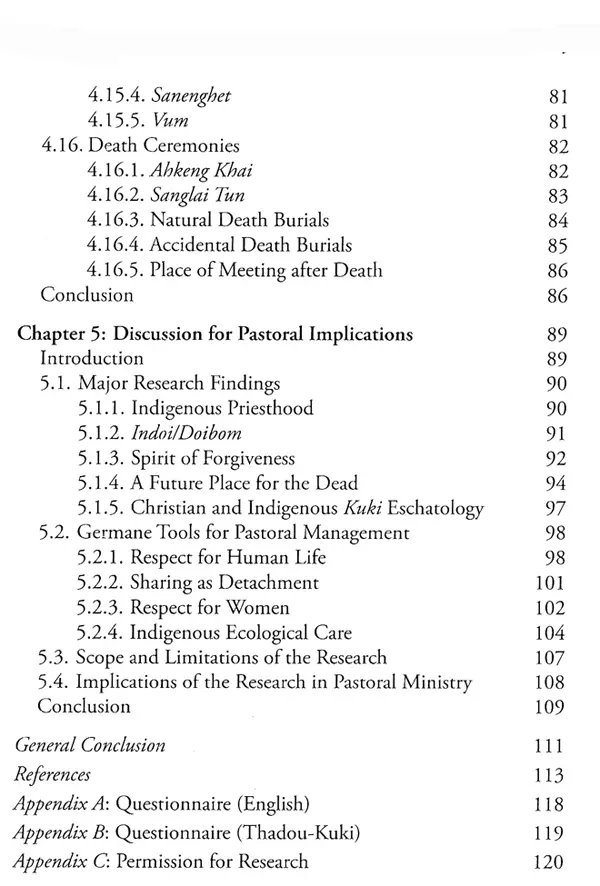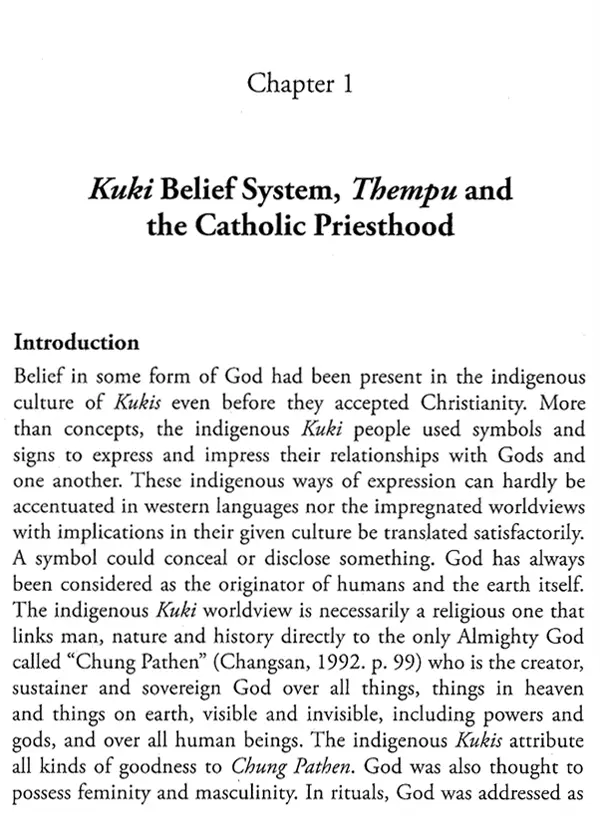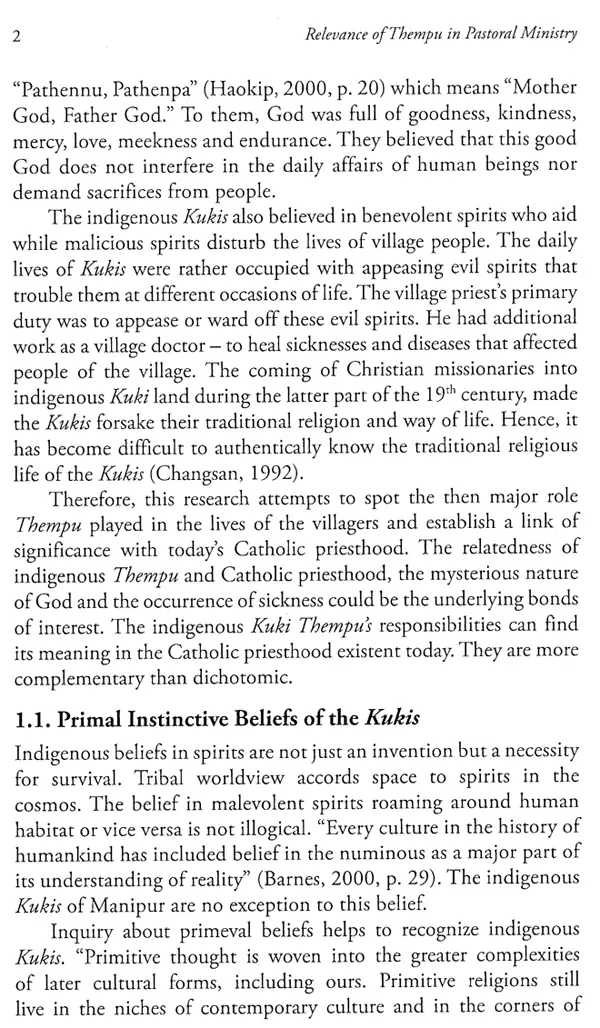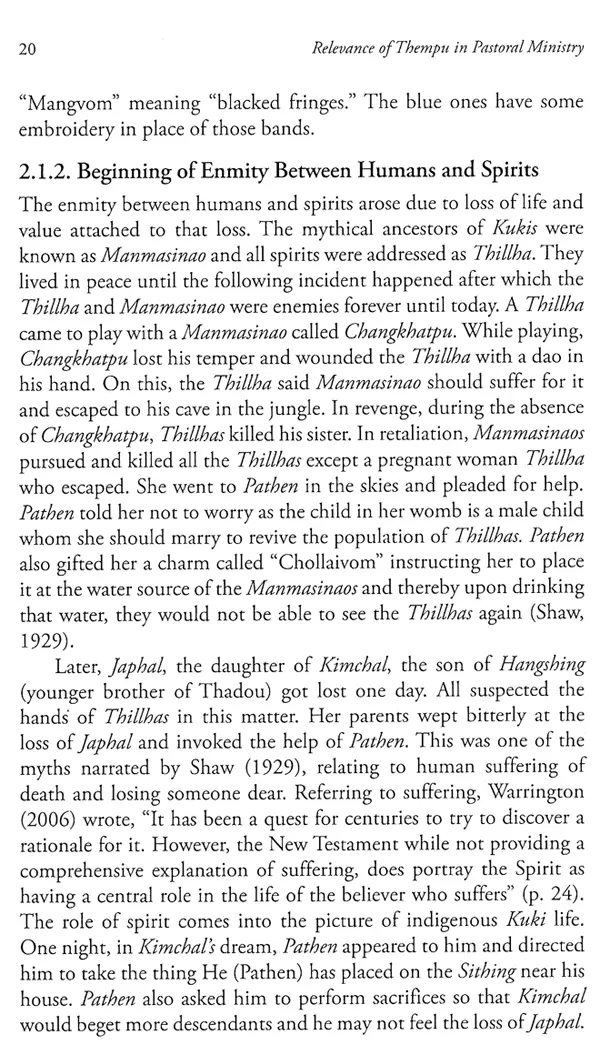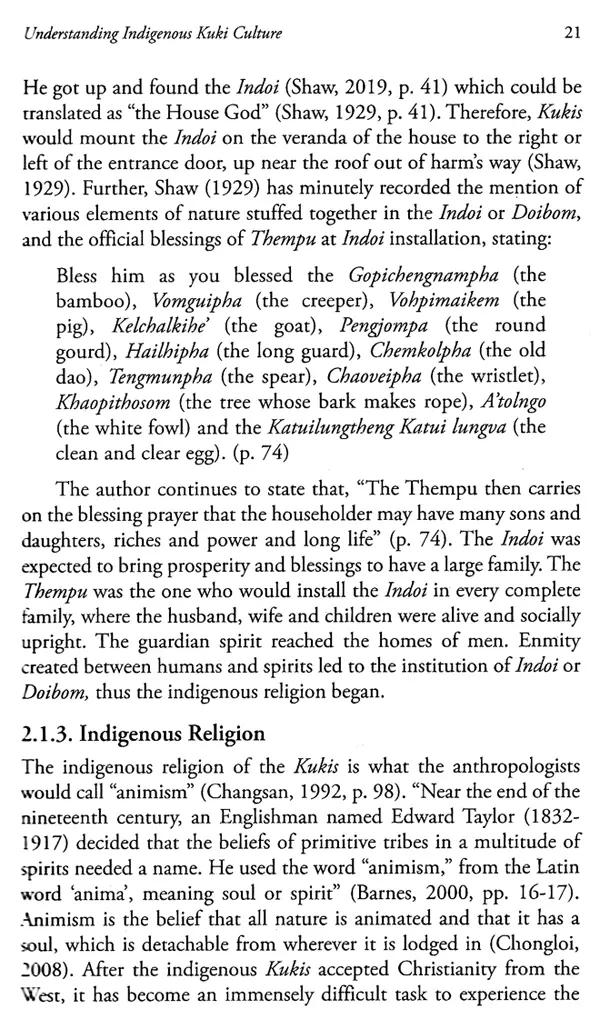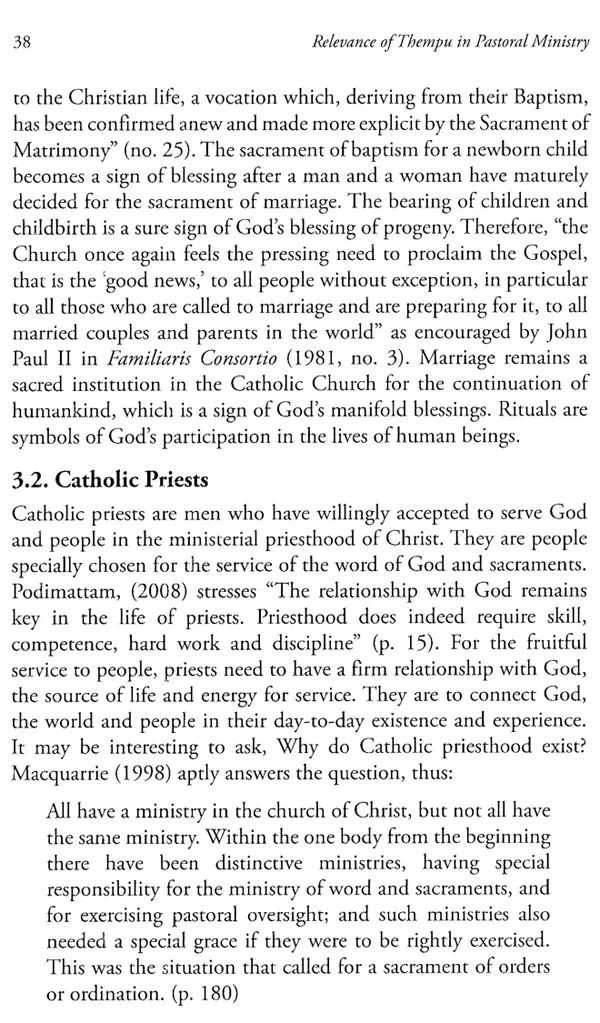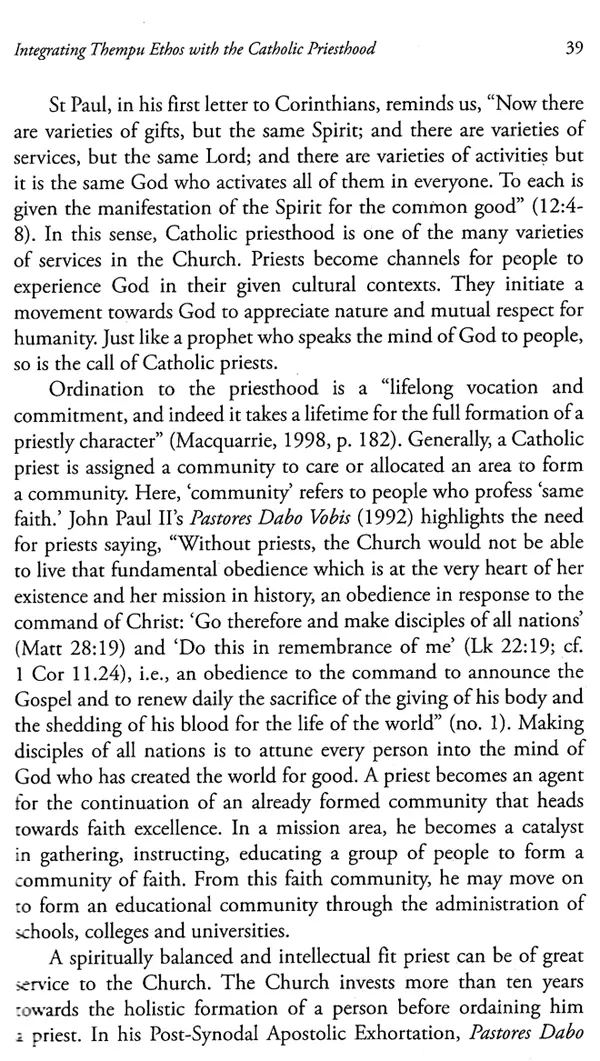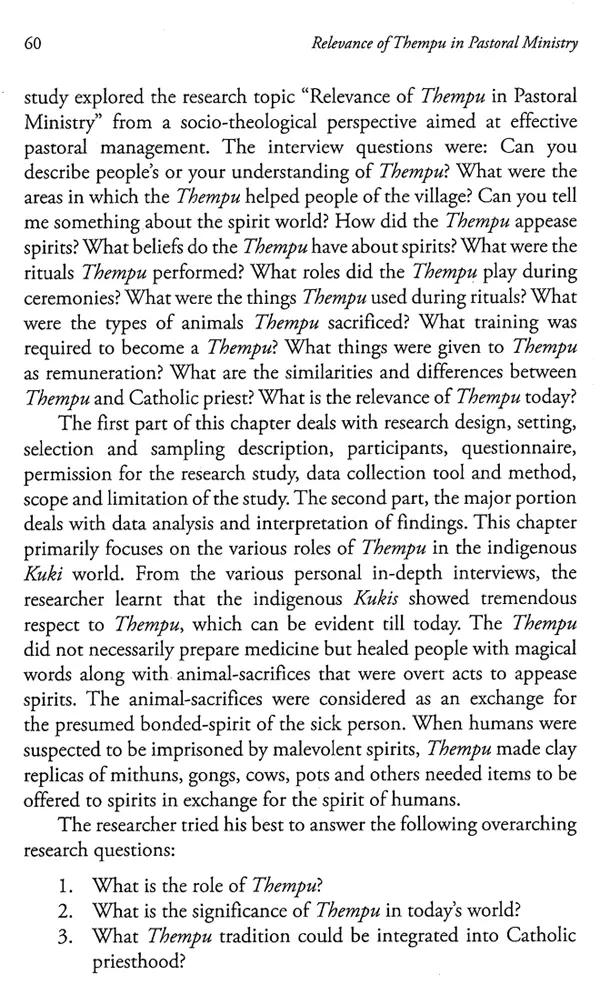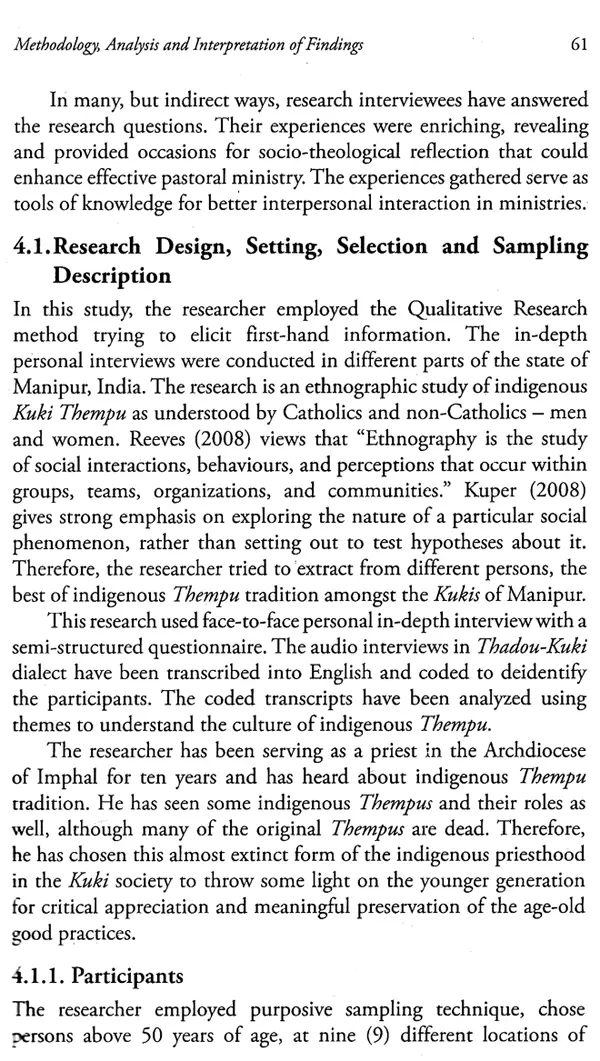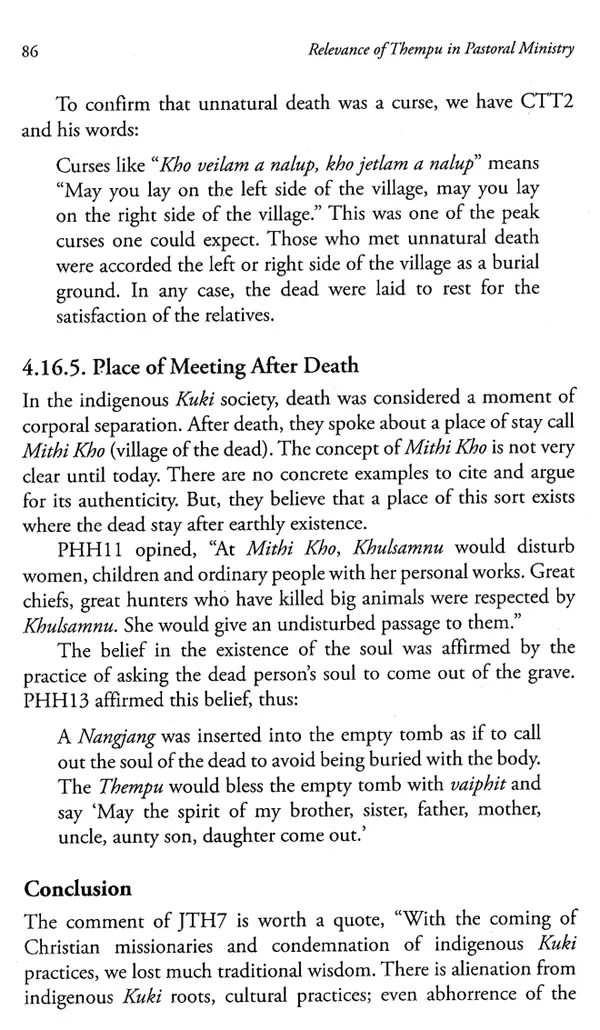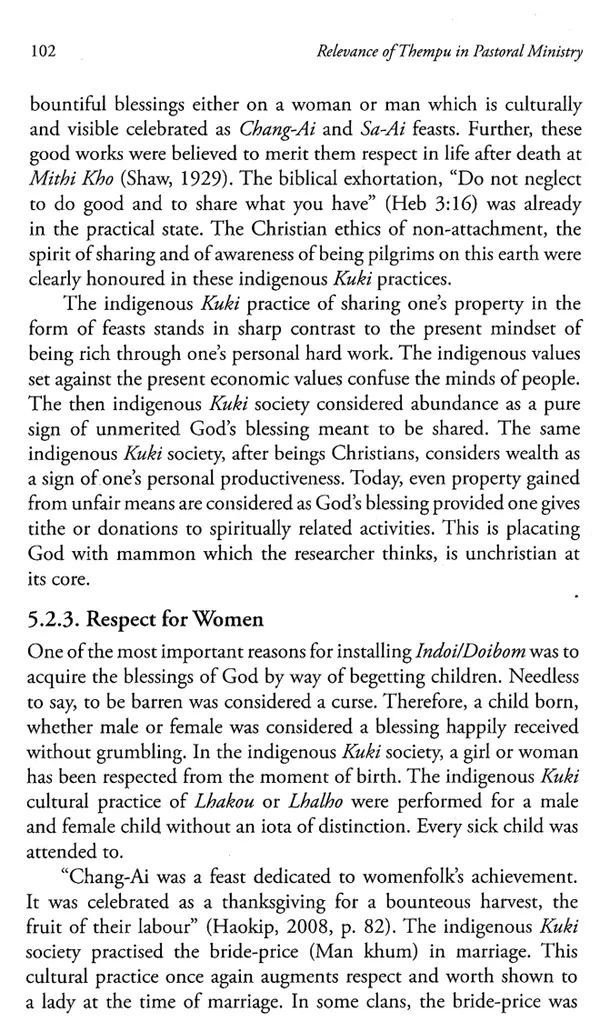
Relevance of Thempu In Pastoral Ministry - A Socio-Theological Perspective
Book Specification
| Item Code: | UBA112 |
| Author: | Paul Lelen Haokip And Jangkholam Haokip |
| Publisher: | Christian World Imprints, Delhi |
| Language: | English |
| Edition: | 2020 |
| ISBN: | 9789351484578 |
| Pages: | 117 |
| Cover: | HARDCOVER |
| Other Details | 9.00 X 6.00 inch |
| Weight | 360 gm |
Book Description
The book gives an in-depth qualitative study on indigenous Kuki Thempu who depended considerably on spirits for the physical and spiritual welfare of the village people. The innumerable cultic rituals he performed showed great respect centred around natural elements like trees, animals, rivers, streams, mountains, and most of all on Indoi. Seeking the goodwill of God and spirits was the primary aim of the Thempu to bring about health and social tranquil atmosphere. A retrograde journey to cultural roots can draw an immense wealth of heritage that could be valuable in effective pastoral ministry in Catholic religious tradition.
Paul Lelen Haokip is a Catholic priest of the Archdiocese of Imphal, Manipur, India. He has a keen interest in ethnography and ethnohistory. He has Master's degrees in Sociology, Public Administration and Pastoral Management; at present pursuing PhD, Department of Sociology, CHRIST (Deemed to be University), Bangalore, Karnataka, India. He practices Wado-Ryu Karate Do. He has served in various capacities in the Archdiocese such as Procurator, Director of Catholic Educational Society Manipur (CESM), Principal of Sacred Heart School, Yairipok. He has published above 60 articles in various newspapers and magazines.
The book, 'Relevance of Thempu in Pastoral Ministry' is a ground- breaking project as the author ventures into exploring the richness and relevance of indigenous wisdom for pastoral ministry which never was a possibility until a recent past. The form of Christianity that came to indigenous Kuki people in the latter part of the 19th and early 20th centuries did not give a room for indigenous expression of faith and practice. They were viewed only to be discarded in the process of civilization."
With a strong conviction that the ancient practices of the indigenous Kuki Thempu could enrich vice-versa the understanding and practice of pastoral ministry, the author formulated three broad guiding questions to carry out his research. He asks what exactly was the role of Thempu in Kuki indigenous tradition, What is the relevance of Thempu for the contemporary society and how would Thempu enhance pastoral ministry particularly within Catholic priesthood.
The strength of the book lies in the followings. First, it is the outcome of firsthand empirical studies which included observations, discussions and interviews with elderly local experts as well as knowledgeable indigenous scholars in the field across all denominations and traditions in Kuki society. For this reason, it is a pioneering work in this particular field.
At the outset, I delimit my research work amongst Thadou-Kuki dialect speaking group of Kukis in Manipur, India. There could be other historical Kuki tribes who have similar values, myths, and culture, of which I am not confident to refer to. Therefore, I shall deal with what I know for clarity and authenticity. While hailing from the North East of India, ironically, I am having in-depth research of my culture after sufficiently influenced by western Christianity. My humble attempt is to situate indigenous Kuki Thempu culture within Christianity and bring more relevance in Catholic liturgy. Though Christianity originated in the East, the indigenous Kukis have received westernized Christianity in the latter part of the nineteenth century. An element of estrangement developed with the arrival of Christianity as if the then thought-to-be-good indigenous Kaki Thempu culture has become impure and demonic all of a sudden. There is a displacement of the indigenous Kuki self within his or her own culture.
Christianity has been influenced by various cultural milieux at a given time and place. If we can speak of westernized Christianity and Roman Catholicism, can we also attempt to evolve a Tribal Christianity or indigenous Kwki Christianity without compromising Christ's values? As a researcher in ethnography and ethnohistory, I set out with no prior thesis, but open for assimilation and readiness to imbibe the indigenous Kuki Themps culture within the larger Kuki cultural practices in the real-life environment with an endeavour to encapsulate Themp culture.
